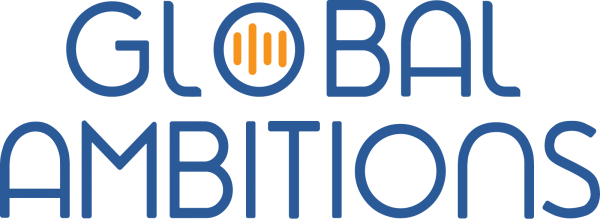Episode 6: With Kara Warburton, Director of Termologic
This is the transcript of Episode 6 of Global Ambitions, published February 9th, 2021.
Antoine Rey 0:18
Hi everyone. I’ll be your host today for this global ambitions podcast episode, and my guest today is Kara Warburton, who is a terminology management consultant. And surprisingly, the topic today is going to be around terminology. What is terminology really? Kara, welcome to the program.
Kara Warburton 0:36
Thank you, Antoine. It’s a great pleasure for me to participate in this podcast series. So, let me get started right away. I am a translator linguist tech writer involved in the translation and localization and content management industry for many years, several decades. But my primary interest is in managing terminology.
Kara Warburton 0:58
One of the greatest misconceptions I find when people hear me talk about terminology is people feel that terminology is something highly specialized. They go, oh terminology that’s like medical terminology or legal terminology or, you know, engineering terms that kind of thing. And they kind of sideline it because they say, well you know, we don’t have so much terminology in our company. We just have the normal language. It doesn’t really concern us. And this kind of thing. So this is the greatest misconception.
Kara Warburton 1:31
Because nowadays terminology is about what I called micro-content. It’s no longer perceived as something in specialized domains or topic areas, but it traverses all language. And it basically refers to considering language at the level of the smallest repurpose or reusable unit, and that is like, perhaps a word or a couple of words that go together. Now, this type of unit, this small piece of language is smaller than any other segment of language that we’re actually managing today in terms of for example translation memories. If you are working with an LSP, and you are having your content translated most likely they’re using a computer-assisted translation tool, which includes translation memories. And those pieces of reusable text are usually at the length of a segment, that’s a full sentence or almost a full sentence.
Kara Warburton 2:30
What terminology is… it’s an approach to managing language at much smaller segments or units. And that’s why I like to refer to it as micro-content as opposed to terminology. When we say terminology people automatically think of those specialized concepts. But we have to get away from that we have to broaden our perspective and consider terminology, any piece of sub-segment level text that can be managed in a certain way. And by managing these small units, you are achieving a high level of re-purpose ability and clarity, and consistency in your organization. So, this is my perception of terminology, it’s not specialized concepts alone. It’s also anything that if you manage in a certain way, can bring benefit to your company or your organization. In terms of, for example, the accuracy of content, consistency, reuse, productivity increases, and repeatability of content, and so forth.
Antoine Rey 3:33
About the repeatability so is that kind of an analogy here in terms of reusing or repurposing content, the same way we’re looking at translation memory or maybe DITA, XML, for instance?
Kara Warburton 3:45
Exactly. We already have the concept of translation memory that’s been around for decades, and in recent years now they’ve sort of shifted also towards the concept of authoring memory, where technical writers can use a database of strings of text in the source language, and where possible or where desirable reuse those segments. And that type of managing set segment level or sentence level text, it does bring the organization a lot of benefits in terms of saved production costs, saved translation costs, and increased consistency.
Kara Warburton 4:17
You know you don’t retranslate things that you’ve translated before. You don’t rewrite things that you’ve written before, and of course, this has been enabled by the advent of XML formats such as DITA, or you know TMX and those kinds of formats. And that’s all well and good, but we’ve reached a saturation point with that level of reusability, we have to go to the next level now which is sub-segment level content, the smaller bits of information that can be reused, repurposed, re leveraged in many different ways and in many different languages. And I must say that any organization or company that is going global really has to think about this, because the repurposing potential of this micro-content is even greater than the repurposing and, you know, benefits, potential that you get from authoring memory or translation memory.
Antoine Rey 5:06
And so do you see in your life as a consultant and working with various organizations and corporations… Did you see those companies evolving towards adopting this kind of approach with terminology, with the micro-content approach? And therefore, how does it affect their business?
Kara Warburton 5:25
Yeah. Once an organization has deployed, let’s say an XML authoring platform such as DITA, and it’s using computer-assisted translation tools that integrate translation memory and authoring memory, the next logical step is to go deeper, and many companies are already doing that. Certainly the large you know Fortune 500 companies have been doing terminology management and again you have to be careful of the word terminology. It’s not just specialized concepts we’re talking about here, but they are managing their micro-content in dedicated databases and repurposing that across the organization, not just in translation but also in authoring, marketing, search engine optimization.
Kara Warburton 6:07
There are all kinds of different ways that these little pieces of micro-content can be leveraged; indexing, meta-tagging of content, automatic content classification, taxonomies and ontologies of the organization’s content and products, and so on. It’s just mind-boggling where you can go with this. So I can say for example organizations that have been doing this for a long time, of course, IBM, Microsoft, SAP, you know Hewlett Packard… I could go on and on. These are companies that have been doing this already for quite some time.
Antoine Rey 6:41
And you see those companies are doing really the micro-content approach as opposed to what you were talking about earlier on that misconception of labeling content based on their domain of expertise, whether it is like legal or HR or financial functions?
Kara Warburton 6:57
Yes, we have to extend our notion of what a term is, as opposed to ordinary words. First of all, terms can be a single word or they can be multi-word expressions such as “access control list” which is a three-word term, right? But it’s still a term. So, we have these units of content that can be a single word I call that a token or a unigram, and then you have two-word terms which are bigrams, three-word terms which are trigrams, and so on. And interestingly enough, bigrams, the two-word terms, and to some extent the three-word terms are of ultimate importance for leveraging and repurposing potential because they reoccur over and over in an organization.
Kara Warburton 7:38
They have to be translated in certain fixed ways, they have various acronyms and abbreviations and it just goes on and on. The repurposing of this content goes beyond, as I said authoring and translation, it opens up a huge amount of opportunities and it means that the investment in terminology management is a no-brainer. I mean, you get much more out of your investment than you put in, in terms of leveraging.
Kara Warburton 8:05
And some organizations now are realizing this, and they’re beginning to approach terminology management as more than just part of their translation or localization process. It goes much beyond that and it touches upon their marketing and it touches upon for example their SEO, their search engine optimization, how to get their search to work better than just if you leave your micro-content randomly out of control. Then, you know you don’t have as good search results in Google and other search engines.
Antoine Rey 8:34
I was gonna ask actually what are the risks that you’re seeing with those corporations if they decide to ignore terminology or micro-content that way. And how does it affect their business?
Kara Warburton 8:45
Yeah, that’s a very good point. Basically, if you don’t manage your micro-content, and by that I mean, you know, you have to have a strategy, you have to have linguists involved who know a little bit of what they’re doing. You should have a dedicated database, and be able to connect that database to external systems. So that’s a whole micro content strategy package, if you will, if you don’t do that then you’re just letting these words and expressions just sort of happen haphazardly or randomly in your company’s content. And that can lead to a lot of inconsistency.
Kara Warburton 9:21
It’s quite a risky situation to be in because you have a lot of inconsistencies, not just in your source content source language content but in all the translated versions. Inconsistencies reduce content retrievability, it reduces search optimization, it adds translation costs because inconsistent source content reduces the leverage of translation memories. It could impact customer satisfaction, it weakens the brand image, it goes on and on. I mean that’s the whole… that question sort of reaches into developing a business case for managing microcontent which of course I’ve been doing for a long time and I have a lot of ideas. But it does reach out to more, as I’m trying to say, more than just the transition part of your business but all sorts of other areas.
Antoine Rey 10:09
So it’s not just inconsistencies between your UI and your manual, your support documentation, but it’s also affecting directly your business from a marketing and SEO perspective from your point of view?
Kara Warburton 10:20
Yeah, exactly. I also would like to mention that achieving consistency reduces production and translation cost so we’re talking about saving money here as well.
Antoine Rey 10:31
Saving money, and probably actually creating opportunities to generate revenue, if you’re using it in your SEO strategy.
Kara Warburton 10:41
Exactly. I mean we’ve seen the search results vastly improve. When the right keywords are infused in web content. Tech writers and translators don’t realize this, they’re not SEO experts. So we need to provide them with support to introduce in a webpage the right keywords that would help increase the ranking of the webpage in search results.
Antoine Rey 11:05
Do you see a difference in approach from the more traditional companies that you mentioned before the IBM or HP of this world, versus the newer organizations that we’ve seen evolve like from Google to Facebook or Amazon? Is there a different approach to this micro content from those companies?
Kara Warburton 11:24
I don’t think so. I think any company that is global has the same challenges and the same desires and wants. I do think there can be a difference, according to the technology that they’re using to produce their content, and so I do believe that companies that have gone to XML are at a much greater advantage in leveraging their micro-content than companies that are remaining, you know, in Microsoft Word for example as their production platform.
Kara Warburton 11:52
So it’s necessary to move towards XML as your entire content production and translation platform for sure. We have, for example, extensions of data. There’s an extension of data called IDs internationalization tags, which allows you to infuse knowledge in your content that supports the downstream localization process and also supports management of micro-content. So that’s why I say XML is important because it provides more options if you will for managing microcontent at the point of creation.
Antoine Rey 12:25
Okay, well I think this is a very fascinating topic and a great introduction for our listeners. In this case, of that misconception that you described, a terminology versus this micro-content approach, and the impact it has on many parts of your business. And I think it’d be interesting to have potentially a follow-up session where we look at what are the biggest challenges that those organizations are facing when they’re setting up their micro-content. What kind of mistakes should they really try to avoid. And what are some of the biggest successes that you may have seen with terminology and microcontent implementation.
Antoine Rey 13:06
This was great, thank you.

Kara Warburton




